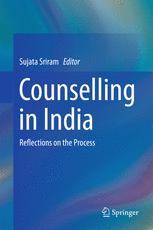

Most ebook files are in PDF format, so you can easily read them using various software such as Foxit Reader or directly on the Google Chrome browser.
Some ebook files are released by publishers in other formats such as .awz, .mobi, .epub, .fb2, etc. You may need to install specific software to read these formats on mobile/PC, such as Calibre.
Please read the tutorial at this link: https://ebookbell.com/faq
We offer FREE conversion to the popular formats you request; however, this may take some time. Therefore, right after payment, please email us, and we will try to provide the service as quickly as possible.
For some exceptional file formats or broken links (if any), please refrain from opening any disputes. Instead, email us first, and we will try to assist within a maximum of 6 hours.
EbookBell Team

4.8
54 reviewsThis volume provides a critical and reflexive view into the counselling profession in India. Counselling and psychotherapy are emergent fields in India; there is inadequate synergy between theory and practice at present, as psychotherapy and counselling practice in the field have not sufficiently informed research, and vice versa. While research on counselling, the counselling process and training, and development of counsellors is extremely vital for the growth of the profession, practitioners seldom feel the need to wear the lens of the researcher.
Drawing upon primary research on counsellors and psychotherapists in different parts of India, this volume bridges this gap and discusses the personal and professional journeys of counsellors at various stages of their career, which in turn facilitates further research on counselling in India. The chapters discuss practical issues like the challenges faced by novice counsellors, which contribute to feelings of inadequacy and incompetence; synergy between the personal and professional lives of counsellors and the effect of the counselling process on the self; elements that go into training and how counselling education could be positioned and developed; the use of creative arts in therapy; and the role of school counsellors and the process of negotiating boundaries among various stakeholders in the school system. The volume also examines ethical dilemmas in the field, which have wider policy ramifications.